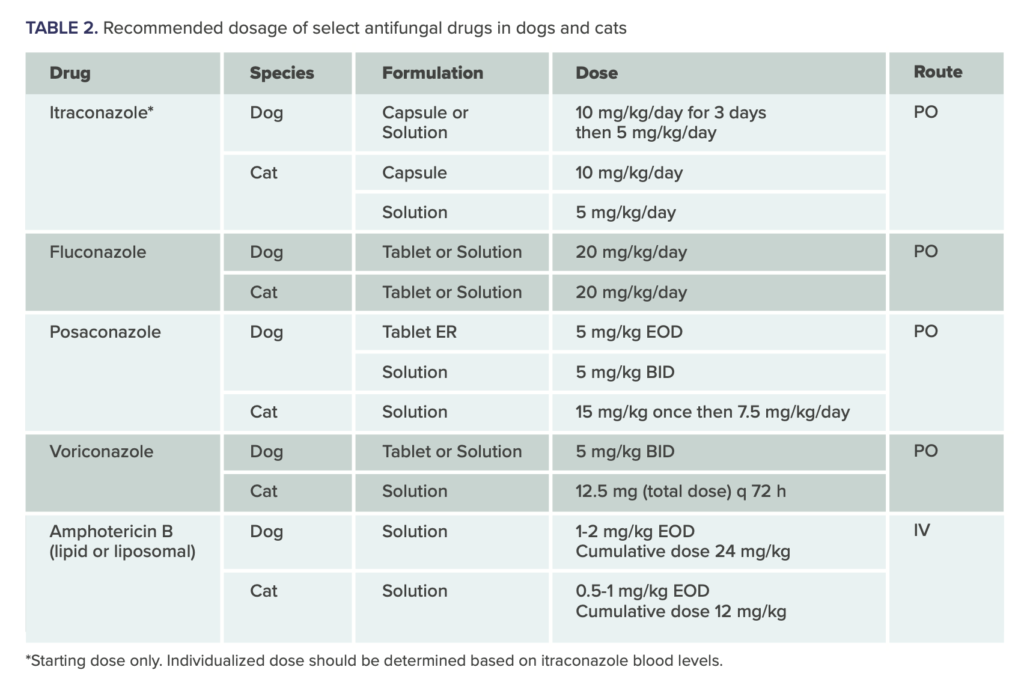Welches antimykotikum sollte ich für meine tierärztlichen patienten
When it comes to treating tinea capitis, a common fungal infection affecting the scalp, oral treatment is often the go-to option. Oral treatments are particularly effective for adult patients dealing with this condition. In this article, we will discuss the various oral treatment options available for adult tinea capitis.
Oral Treatment of Adult Tinea Capitis

One of the commonly prescribed medications for treating adult tinea capitis is Griseofulvin. It is an antifungal medication that works by inhibiting the growth of the fungus responsible for the infection. Griseofulvin is usually taken orally as a tablet or a suspension for a specified duration as prescribed by a healthcare professional.
Another oral treatment option is Terbinafine. It is an antifungal medication that effectively targets the fungus causing tinea capitis. Terbinafine can be taken once daily or as prescribed by a healthcare provider. It is available in tablet form.
Itraconazole is another antifungal medication commonly used for adult tinea capitis treatment. It is available in capsule form and requires a prescription. Itraconazole works by interfering with the production of ergosterol, a component essential for fungal cell membranes, ultimately inhibiting the growth of the fungus.
Fluconazole, an antifungal medication belonging to the azole group, can also be used to treat adult tinea capitis. It can be taken orally in the form of tablets or liquid suspension. Fluconazole is often prescribed as a once-weekly dose for a specific duration as recommended by a healthcare professional.
Antifungal Therapy in Veterinary Medicine

It's not just humans who can be affected by fungal infections; our furry friends can also experience similar issues. In veterinary medicine, the choice of antifungal therapy depends on the specific needs of the animal. It is important to seek advice from a veterinarian for the appropriate treatment options for your pets.
The antifungal therapy chart above provides valuable information regarding the dosing and treatment options for fungal infections in animals. It is important to note that the dosages and medications mentioned in the chart should only be administered under professional veterinary guidance.
When treating fungal infections in animals, the choice of medication may vary based on factors such as the type of infection, the animal's species and size, and other health considerations. Some of the commonly used antifungal medications in veterinary medicine include fluconazole, itraconazole, terbinafine, and griseofulvin.
It is crucial to follow the prescribed treatment plan and complete the full course of medication to ensure effective eradication of the fungal infection in both humans and animals.
In conclusion, oral treatment options for adult tinea capitis include medications such as Griseofulvin, Terbinafine, Itraconazole, and Fluconazole. These antifungal medications work effectively in treating the fungal infection and restoring the health of the scalp. When it comes to our beloved pets, consulting a veterinarian is vital to determine the appropriate antifungal therapy for their specific needs. By following the prescribed treatment plan, both humans and animals can overcome the challenges posed by fungal infections and return to a healthy, fungal-free life.